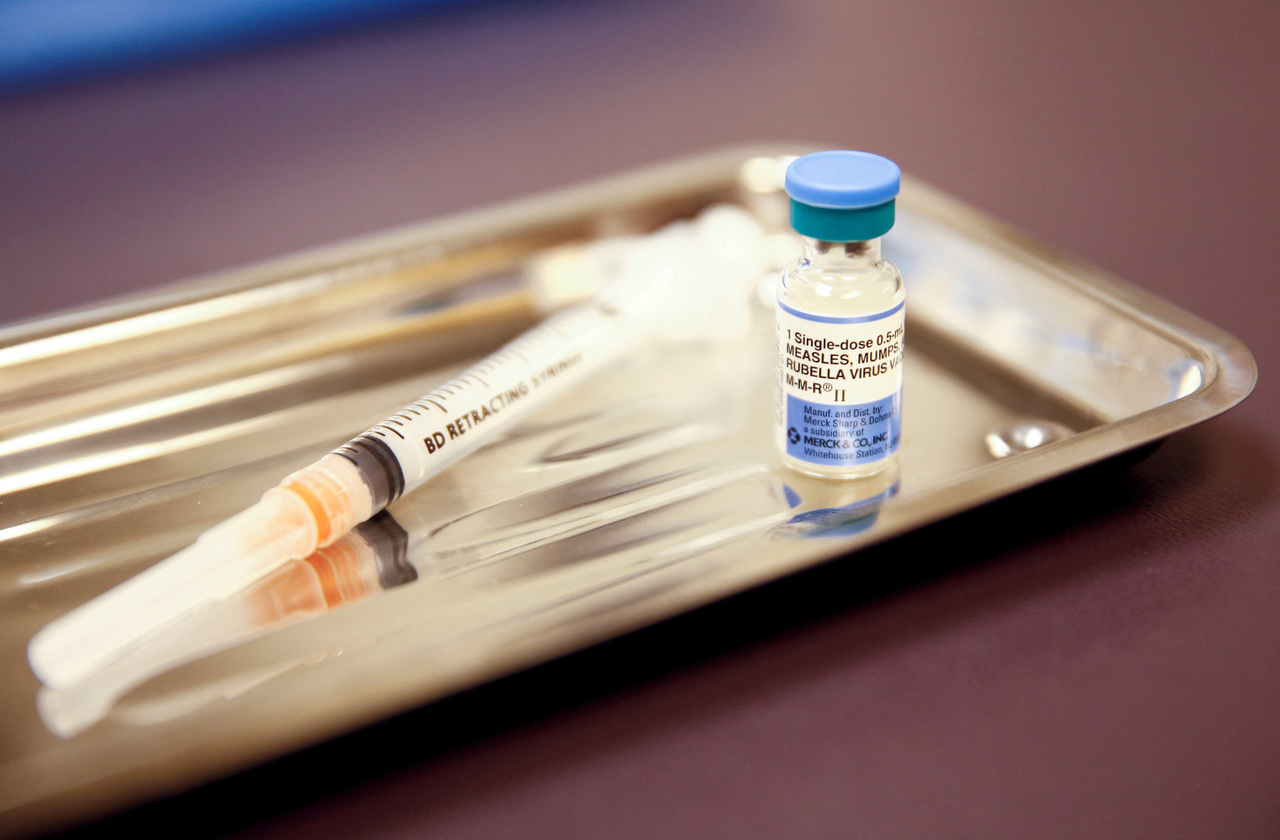Singapore has eliminated rubella after meeting WHO criteria, says MOH
Sign up now: Get ST's newsletters delivered to your inbox

Singapore's rubella incidence rate has remained stable over the last decade, with fewer than two cases for every 100,000 people.
PHOTO: REUTERS
Follow topic:
SINGAPORE - The Republic has eliminated rubella or German measles – meeting all the criteria set by the World Health Organisation (WHO), the Ministry of Health (MOH) said on Friday.
These included a documented stop of endemic rubella virus transmission for a period of at least three years, with verifiable, high-quality surveillance as well as genotyping evidence supporting the interruption of transmission.
Professor Vernon Lee, communicable diseases senior director at MOH, noted that Singapore has been working towards satisfying the criteria for rubella elimination since stopping measles here in 2018.
The country will maintain its efforts in the prevention and control of the disease, he said. Measures include a robust national immunisation programme, an established system of disease surveillance and swift contact-tracing.
The highly infectious rubella is spread through the air or by close contact. While children show few symptoms, they may experience a low-grade fever and swollen glands behind the ears and at the back and sides of the neck.
In adults, the disease may cause fever, runny nose and inflamed eyes – symptoms that may last up to five days before rashes appear. Pregnant women who get infected are at risk of severe complications such as miscarriage or birth defects in the foetus.
Apart from Singapore, six other countries and regions in the Western Pacific region have interrupted transmission of the rubella virus – Australia, Brunei, Hong Kong, Macau, New Zealand and South Korea.
Singapore's rubella incidence rate has remained stable over the last decade, with fewer than two cases for every 100,000 people, MOH said.
"Immunisation continues to be the best way to protect children from vaccine-preventable disease like rubella," it added.
Children here are required to get two doses of the rubella vaccine – in the form of the measles, mumps and rubella (MMR) vaccine – at 12 months and 15 months.
These are free for all Singaporean children at Community Health Assist Scheme general practitioner clinics and polyclinics.
Doctors are also required to notify MOH of all suspected rubella cases, while pregnant women who get infected will be monitored and their babies checked for infection and congenital rubella syndrome.
"Even with these measures, we can continue to expect to have sporadic cases and small family clusters of rubella because the disease is highly transmissible among unvaccinated individuals," MOH said.
Adults without documented immunity or who have not been vaccinated are advised to get the MMR vaccination.
Associate Professor Hsu Li Yang, who sits on the WHO's Regional Verification Commission for Measles and Rubella Elimination for the Western Pacific, said: "With the reopening of borders, intermittent importation of rubella cases is a certainty, which may even result in small outbreaks because of the highly transmissible nature of the virus, and because population immunity is not 100 per cent."
However, high vaccination rates here mean the outbreaks will quickly peter out, especially with MOH quickly picking up such cases, he added.

